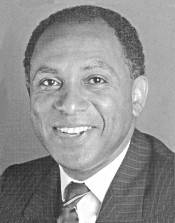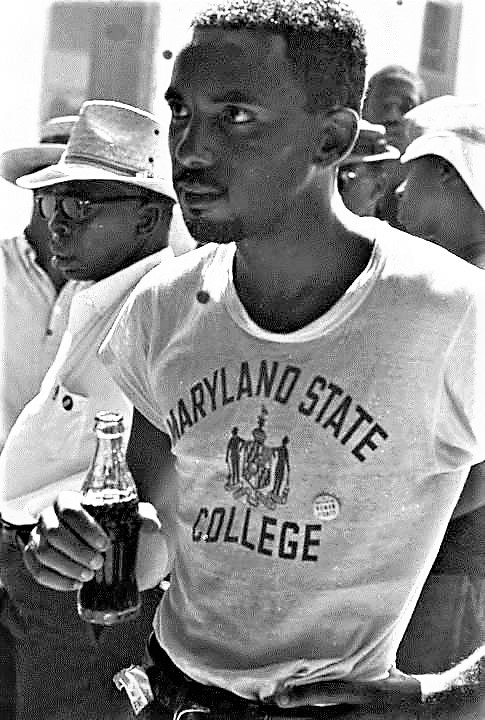
Social turmoil fueled by the Civil Rights movement of the early 1960s touched Princess Anne as it did many college communities across America.
One student-crusader behind civil unrest that spilled into town from Maryland State College in that era was John Augustus Wilson, who a decade later recast himself as a charismatic change agent in the nation’s capital.
When he died unexpectedly in 1993, The Baltimore Sun sought out Wilson’s former math professor, who by then was UMES’ president.
“Johnny Wilson was one of the most radical students of that movement,” William P. Hytche told the newspaper. “Johnny could have been a wealthy man, but that was not his goal. He wasn’t interested in frills. He wanted to make life better for other people.”
Born in Baltimore, Wilson was raised by Laura and Walter Maddox, his maternal grandparents, in a home on Church Street in Princess Anne. A 1961 graduate of old Somerset Junior and Senior High School, which became Kiah Hall on the UMES campus, he enrolled in the public teachers college for Blacks in Bowie, Md. (now Bowie State University).
His first try at college flopped. So he returned to Princess Anne to study at Maryland State, where he enrolled in the spring of 1963. Records show he was a physical education major through the fall of 1965.
During those two-plus years, Wilson’s name and picture appeared in mainstream and alternative press reports as a leader of Student Appeal For Equality, a group that protested against segregation that was the norm in Princess Anne for generations.
A posthumous profile on Wilson published in The Washington Post six months after his death said that “as freshman class president, he led a protest march that turned ugly and resulted in a retaliatory firebombing of his grandparents’ old house. (No one was hurt.)”

Department of Archives & History
Those challenges notwithstanding, Princess Anne could not contain Wilson’s rebellious energy. He gravitated to the national civil rights movement, aligning himself with the NAACP and the Student Nonviolent Coordinating Committee. Wilson traveled in the same activists’ circles as Dick Gregory, Malcolm X and Congressman Adam Clayton Powell Jr., Maryland State’s 1956 commencement speaker.
He eventually made his way to Washington, D.C., where he protested against the Vietnam War and worked alongside Marion Barry, who became a mayor of Washington, and John Lewis, who in 1987 won election to Congress representing Atlanta.
Wilson transformed himself from anti-establishment activist to admired civic leader when he became a vocal advocate of home rule for nation’s capital. He then ran for and won a city council seat in 1974.
Popular if not controversial most of his adult life, Wilson served 18 years as an elected official, including two as District of Columbia Council chairman. He championed causes of the underprivileged and disenfranchised, using his considerable political skills to push through legislation on rent control, child abuse prevention, tax reform, consumer protection and victims’ rights.
That promising career ended abruptly May 19, 1993, when he succumbed to depression and took his own life. He was 49.
Wilson’s funeral attracted an estimated 3,000 mourners to St. Augustine Catholic Church. Among them were childhood friends from Princess Anne, where a year earlier he purchased a home on Beechwood Street as a get-away from the pressures of public life.
“Johnny was a great young man,” Ethel Cottman told The Baltimore Sun in its May 22, 1993 article reporting on reaction to his death.
“He did what he had to do in Princess Anne, marching to say what had to be said,” said Cottman, a Somerset County teacher who told the newspaper she considered Wilson one her favorite students.
Friends said Wilson talked of finishing work on an undergraduate degree at the University of Maryland Eastern Shore, perhaps even teaching there or working as an administrator.
After his death, political allies and friends succeeded in getting the District of Columbia’s municipal government building named in his honor.
A private drive off College Backbone Road at the eastern edge of the UMES campus that leads to a Maryland Fire and Rescue Institute training center bears the name “John Wilson Lane.” As UMES president, Hytche OK’d the gesture.
Wilson and his wife, Bonnie, had no children. UMES manages two scholarship funds named in his honor.
UMES awarded Wilson an honorary degree in public service on May 25, 1986.

